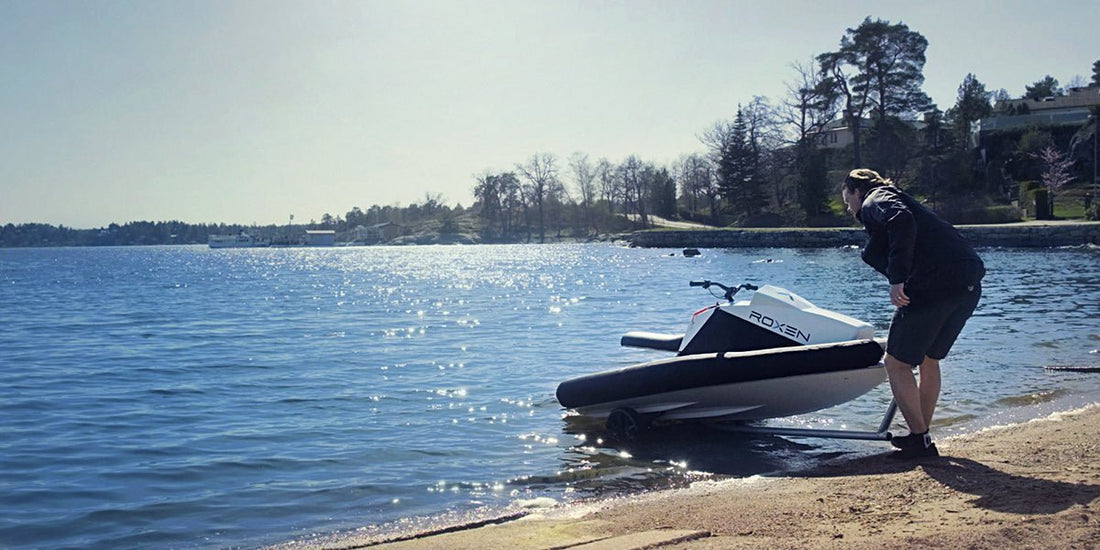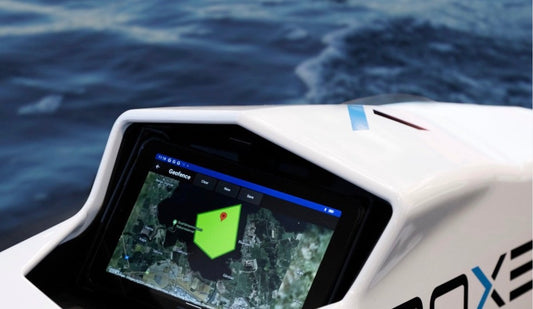
Electric vs Petrol: The Future of Watercraft Performance
Share
The personal watercraft industry is evolving rapidly as electric jet skis challenge the dominance of petrol-powered jet skis. With advances in battery technology and increasing environmental awareness, many riders are asking: Is it time to switch to an electric watercraft? At ROXEN, we believe the future is electric. Here’s how electric and petrol models compare.
Performance and Ride Experience
Petrol-powered watercraft have long been the go-to for high-speed performance and extended ride times. Some models exceed 100 km/h and run for hours on a single tank. The engine’s roar and raw power are part of the thrill.
ROXEN’s electric watercraft takes performance to the next level. Weighing just 55 kg, it delivers instant torque and rapid acceleration, often outpacing petrol models from 0–50 km/h. With a top speed of 30 knots and a cruising speed of 15 knots, its ultra-lightweight design ensures a smooth yet thrilling ride. Plus, its detachable inflatable tubes provide added stability and portability. The silent motor enhances the experience, allowing riders to connect with nature without disruptive noise.
Environmental Impact: Zero Emissions - Maximum Fun
Petrol-powered PWCs contribute to air and water pollution through fuel emissions and oil leaks. As environmental regulations tighten, electric alternatives are becoming the preferred choice for eco-conscious riders and rental businesses.
ROXEN is leading this change with 100% electric watercraft that produce zero emissions. Our design reduces running costs by 97%, requires 90% less maintenance, and eliminates harmful pollutants. The swappable battery system extends ride time without compromising performance or sustainability.
Cost and Maintenance: Electric Wins in the Long Run
Petrol engines require regular upkeep—oil changes, fuel system maintenance, and exhaust repairs. These costs add up over time. Electric watercraft, in contrast, have fewer moving parts, resulting in minimal maintenance.
While the initial cost of an electric model may be higher, long-term savings on fuel and upkeep make it a smart investment. ROXEN’s 22 kW electric motor and 5.5 kWh swappable battery are designed for efficiency, providing a cost-effective solution for water sports enthusiasts.
Charging vs Refuelling: Convenience Redefined
Petrol PWCs have the advantage of instant refuelling—fill up the tank and ride. Electric watercrafts require charging, which takes a few hours depending on the charger. However, battery technology is advancing rapidly, reducing downtime.
At ROXEN, our fast-charging and swappable battery solutions ensure you spend more time on the water and less time waiting.
The Future of Watercraft: Why Electric is Taking Over
As electric watercraft improve in range, charging speed, and affordability, they are set to dominate the market. More manufacturers are investing in electric innovation, and areas with environmental restrictions are favouring these eco-friendly alternatives.
ROXEN is driving this transformation. Designed in Sweden by water sports enthusiasts, our electric watercraft blend power, performance, and sustainability. With smart app integration, geofencing technology, and over-the-air updates, ROXEN can adapt to your riding style for a seamless and responsible experience.
Ultimately, the choice between electric and petrol watercraft depends on your priorities. But with the industry shifting towards a cleaner, more sustainable future, ROXEN’s electric PWC is already ahead of the curve.
Would you choose an electric over a petrol-powered watercraft?



